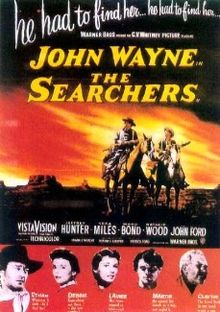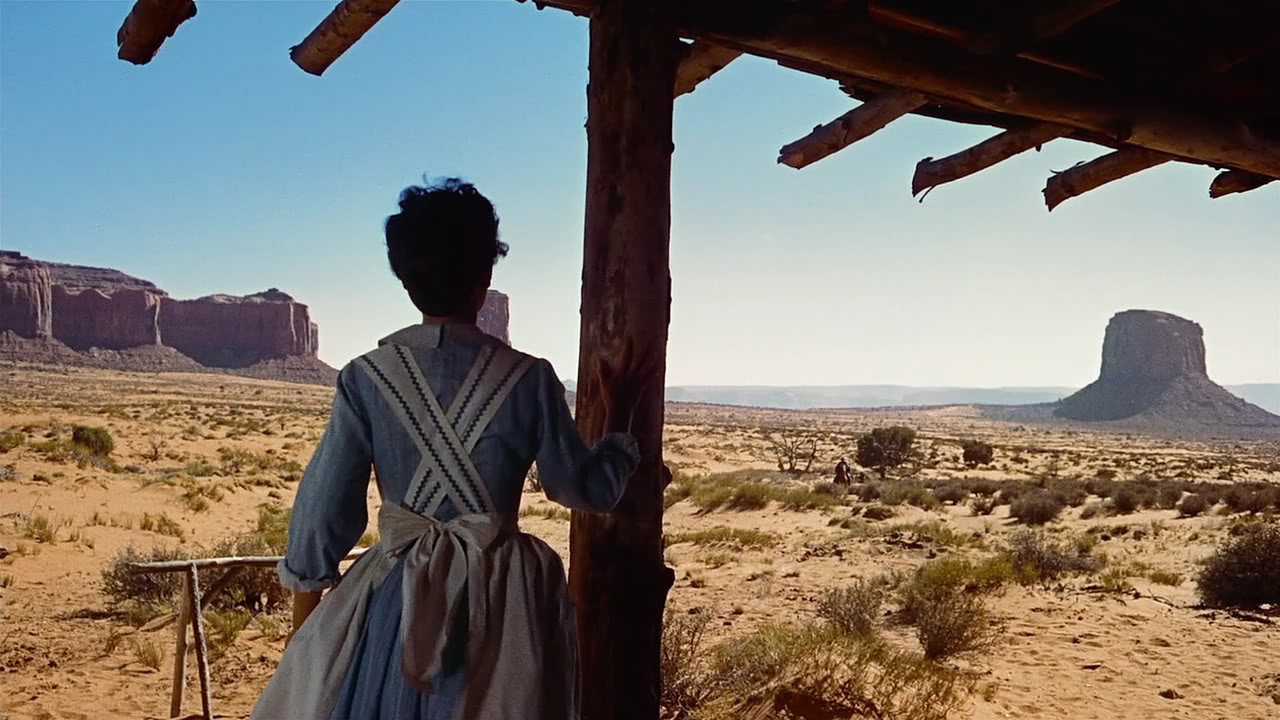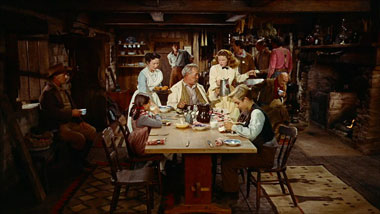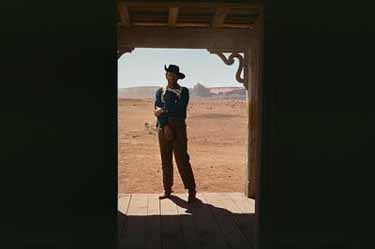 I’ve been working my way through a few Westerns recently: Red River, The Man Who Shot Liberty Valance, The Naked Spur, Stagecoach and The Wild Bunch. Not because I particularly enjoyed any of them, but because- just like spinach or Brussels sprouts- they’re good for me. Show me a saloon, saddle or tumbleweed and I usually run in the opposite direction. (Notable exceptions are Sergio Leone’s Dollars trilogy, The Magnificent Seven, Butch Cassidy and the Sundance Kid and to my surprise Ride the High Country.) Still, I grew abashed at the number of ‘must see’ Westerns I had not in fact seen and decided to make amends.
I’ve been working my way through a few Westerns recently: Red River, The Man Who Shot Liberty Valance, The Naked Spur, Stagecoach and The Wild Bunch. Not because I particularly enjoyed any of them, but because- just like spinach or Brussels sprouts- they’re good for me. Show me a saloon, saddle or tumbleweed and I usually run in the opposite direction. (Notable exceptions are Sergio Leone’s Dollars trilogy, The Magnificent Seven, Butch Cassidy and the Sundance Kid and to my surprise Ride the High Country.) Still, I grew abashed at the number of ‘must see’ Westerns I had not in fact seen and decided to make amends.
At the top of my list was The Searchers. This film is widely regarded as director John Ford’s magnum opus– no small feat in a filmography that also includes Young Mr. Lincoln, The Grapes of Wrath and the aforementioned Stagecoach– as well as definitive proof that John Wayne was a splendid actor. Of course I had to see it.
Texas, 1868 and Civil War veteran Ethan Edwards (John Wayne) arrives at his brother Aaron’s home after a prolonged, mysterious absence. He receives a warm welcome and is particularly glad to be with Aaron’s wife Martha, whom he secretly loves. When some cattle go missing, Ethan and his adopted nephew Martin Pawley (Jeffrey Hunter) join a posse of neighbours to retrieve them. However Ethan quickly realises that the cattle were a diversion: the real targets are the now-undefended homesteads. He and Martin return only to find their home razed to the ground and the family slaughtered, save for the two girls, teenage Lucy and little Debbie, who are missing. Ethan swears vengeance and sets off to find them.
My single biggest problem with traditional Westerns is the black and white morality: white settlers good; Native Americans bad. Even Stagecoach, in which characters range from corrupt pillars of the community to virtuous women of ill repute, subscribes to this. No matter how despicable their deeds, none of the passengers are as intrinsically vicious as the Indians attacking them. The Searchers offers a refreshingly nuanced, complicated attitude to race and morality. In this film there is no black and white- only shades of grey.
Central to the ambiguity is Ethan Edwards. I am no great admirer of John Wayne. The gruff, he-man persona he cultivated on screen does not appeal to me. However even I can see that he is very, very good here. Ethan Edwards is a monstrous figure, a noble bigot fast losing any nobility, and all his humanity with it. He is also the closest the film offers to a hero. Ethan’s pathological hatred of Native Americans leads him to shun Martin (an eighth Cherokee and thus as bad as a full-blooded Indian) and to desecrate a brave’s corpse, an act so disturbing it gives other members of his rescue party pause. A harrowing scene also has Ethan and Martin encounter female settlers rescued from a Comanche camp, the women clearly traumatized by their ordeal. Wayne’s face registers an arresting combination of contempt, horror, rage and fear that is nothing short of a glimpse into the character’s soul: “They ain’t white. Not anymore. They’re Comanche.” Throughout the film Wayne straddles savagery and self-loathing, ensuring audiences are never easy in Ethan’s company. It is a remarkable performance and fully deserves all the praise it has received.
Alongside Wayne, the most impressive thing about The Searchers is its cinematography. From the opening shot of Martha looking out her cabin door, a silhouette etched against blazing sunlight, the movie is a series of paintings brought to life. See for yourself.
John Ford delineates sharply between the various homesteads and the vast landscape beyond. The Edwards’ home, for example, is cramped but cosy, topped off by a conspicuous low ceiling; outside the land stretches for miles, wide open wilderness under a big blue sky. I once heard cinematography described as painting with light- that is precisely what Ford and cinematographer Winton C. Hoch achieve and it is beautiful to watch.
The Searchers is not my favourite movie, or even my favourite Western, but I respect and recommend it as a fantastic achievement in filmmaking. John Wayne is astonishing, backed by a strong cast (look out for a young Natalie Wood), the photography is magnificent and the story remains a powerful indictment of brutality and intolerance. It is definitely a ‘must see’.



Leave a Reply